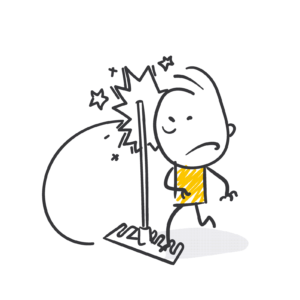Recent advances in digital technology have made many aspects of our lives easier and more convenient. At the same time, digital technology has also created some serious complications when it comes to estate planning. In fact, if you have not properly addressed your digital assets in your estate plan, there is a good chance that most of those assets will be lost forever when you pass away.
Without the proper estate planning, it can be a major headache, or even impossible, for your loved ones to locate and access your digital following your incapacity or death. Even if your loved ones can access your digital assets, doing so may violate privacy laws or the terms of service governing your accounts. You may also have certain digital assets that you do not want your loved ones to inherit, so you will need to take steps to restrict or limit access to those assets.
Fear not, because there are several special considerations you should be aware of when including digital assets in your estate plan. In this two part blog series, I will discuss the most common types of digital assets, along with the current laws governing them, and then offer some practical tips to ensure your digital property is properly accounted for, managed, and passed on in the event of your incapacity or death.
Types of Digital Assets
Digital assets include a wide array of digital files and records that you have stored in the cloud, on smartphones and mobile devices, or on your computer. When it comes to estate planning, your digital assets will generally fall into two categories: those with financial value and those with sentimental value. Often, the sentimental assets could mean far more to the people you love (and your future generations) than the assets with financial value.
Imagine if your future generations can use your digital assets to learn from your experiences as a direct result of how you handle those assets in your estate plan.
Digital assets with financial value include cryptocurrency like Bitcoin or Ethereum, digital art like non-fungible tokens (NFTs), online payment accounts like PayPal or Venmo, loyalty program benefits like frequent flyer miles or credit card reward points, domain names, websites and blogs generating revenue, as well as other intellectual property like photos, videos, music, and writing that generate royalties. Such assets have real financial worth for your loved ones, not only in the immediate aftermath of your death or incapacity, but potentially for years to come.
Digital assets with sentimental value include email accounts, photos, video, music, publications, social media accounts, apps, and websites or blogs with no revenue potential. This type of property typically will not be of any monetary value, but it can offer real sentimental value and comfort for your family following your death and inform future generations in ways you may not have considered.
Do You Own Or License The Asset?
You might not know it, but you do not own many of your digital assets at all. For example, you do own assets like cryptocurrency, NFTs, and PayPal accounts, so you can transfer ownership of these items in a will or trust. However, when you purchase some digital property, such as iTunes music files, Amazon e-books or digital art for a website or social media content, all you really own is a license to use it. In many cases, that license is only for your personal use and is non-transferable.
Whether or not you can transfer licensed property depends almost entirely on the account’s Terms of Service Agreements (TOSA) to which you agreed (or more likely, just clicked a box without reading) upon opening the account. While many TOSA restricts access to accounts only to the original user, some allow access by heirs or executors in certain situations, while others say nothing at all about transferability.
Review the TOSA of your online accounts to see whether you own the asset itself or just a license to use it. If the TOSA states the asset is licensed, not owned, and offers no method for transferring your license, you’ll likely have no way to pass the asset to anyone else, even if it’s included in your estate plan.
To make matters even more complicated, even if your loved ones may be able to access your digital assets if you have provided them with your account login and passwords, doing so may violate the TOSA and/or privacy laws. To legally access such accounts, your heirs will have to prove they have the legal authority to access them, a process which up until recently was a huge legal grey area.
The good news is most states have adopted laws that help clarify how your digital assets can be accessed and disposed of in the event of your death or incapacity.
The Law of the Digital Land
Until very recently, there were no laws governing who could access your digital assets in the event of your incapacity or death. As a result, if you died without leaving your loved ones your usernames or passwords, the tech companies who controlled the platforms housing the assets would often delete the accounts or leave them sitting in a state of online limbo, inaccessible to your family and friends.
This gaping hole in the legal landscape caused considerable heartbreak for families looking to collect their loved one’s digital history, and it caused major frustration for the executors and trustees charged with cleaning up the estate—it also led to the loss of an untold amount of both tangible and intangible wealth. The federal government finally stepped in to find a solution for this problem starting in 2012, and by 2014, the Uniform Law Commission passed the Uniform Fiduciary Access to Digital Access Act (UFADAA).
A revised version of this law, the Revised Uniform Fiduciary Access to Digital Assets Act (RUFADAA) was passed in 2015, and as of March 2021, it has been adopted in all but four states. The law lays out specific guidelines under which fiduciaries, such as executors and trustees, can access your digital assets. The Act allows you to grant a fiduciary access to your digital accounts upon your death or incapacity, either by opting them in with an online tool furnished by the service provider or through your estate plan.
The Act offers three-tiers for prioritizing access. The first tier gives priority to the online provider’s access-authorization tool for handling accounts of a decedent. For example, Google’s “inactive account manager” tool lets you choose who can access and manage your account after you pass away. Facebook has a similar tool that allows you to designate someone as a “Legacy Contact” to manage your personal profile.
If an online tool is not available or if the decedent did not use it, the law’s second tier gives priority to directions given by the decedent in a will, trust, power of attorney, or other means. If no such instructions are provided, then the third tier stipulates the provider’s TOSA will govern access.
The bottom line: If you use the provider’s online tool—if one is available—and/or include instructions in your estate plan, your digital assets should be accessible per your wishes in most every state under this law. However, it is important that you leave your designated trustee, executor, or agent with detailed instructions about how to access your accounts, including usernames and passwords, because without such information, your trusted fiduciary will not be able to access, much less manage, your digital assets if something happens to you.
Make a Plan for Your Digital Assets
It cannot be stressed enough that leaving detailed instructions is the best way to ensure your digital assets are managed in exactly the way you want when you die or if you become incapacitated. In the second part of this series, I will offer practical steps for properly including your digital assets in your estate plan.
Meanwhile, contact me as your Personal Family Lawyer® if you have any questions about your digital property or how to include it in your estate plan.









